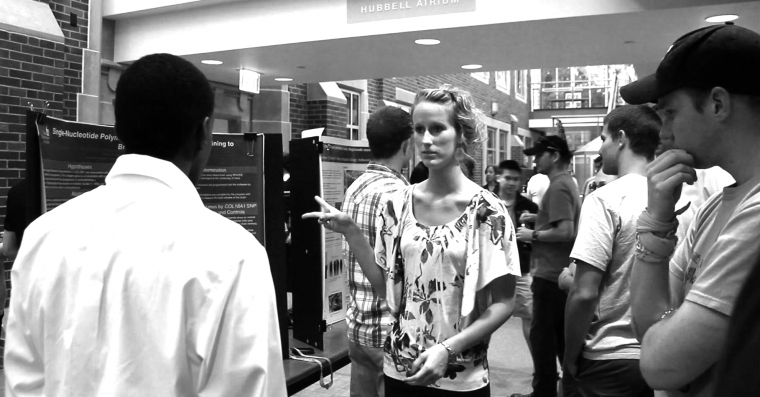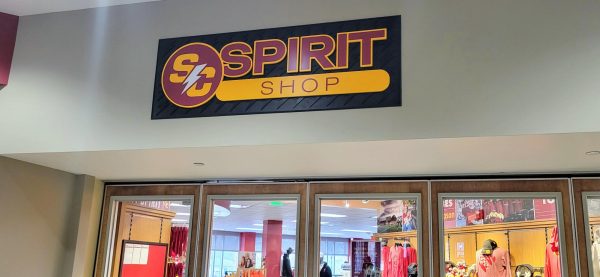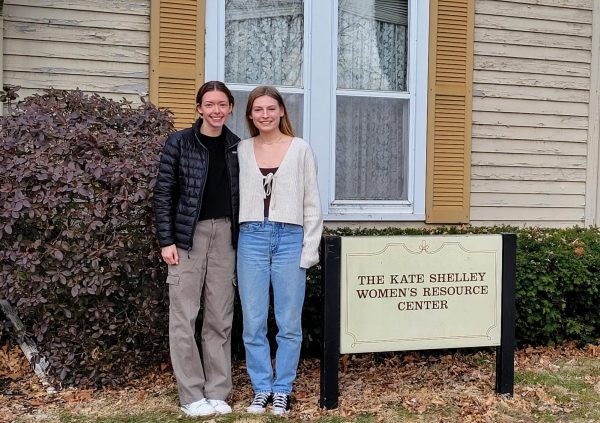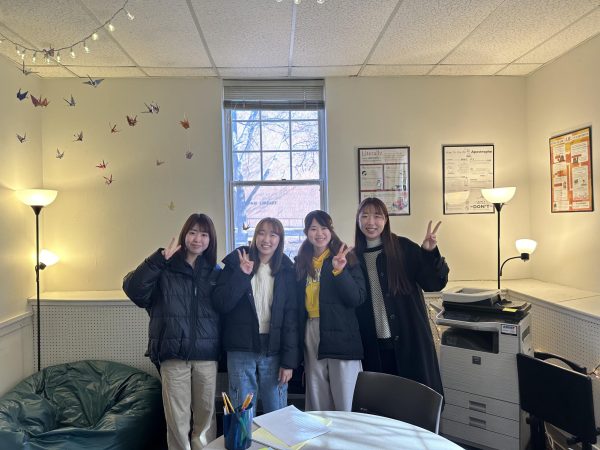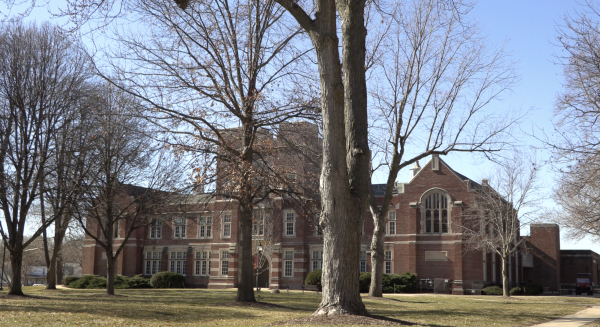Students present undergraduate research
October 4, 2011
Twenty-one.
That’s how many Simpson College students participated in the Summer Research Symposium on Wednesday, Sept. 28.
The Summer Research Symposium took place from 6-8:15 p.m. in Jordan Lecture Hall, with the Poster Session in Carver Atrium from 6:45-7:15 p.m. Students ranging from sophomores to seniors participated in the Symposium on Wednesday. All of these students are part of the Division of Natural Sciences.
The presentations and posters varied in topics, highlighting the undergraduate research Simpson College students participated in over the summer.
“There’s everything,” sophomore Heather Malbon said. “There were many, many, many different areas covered. Like you could go there (the Symposium) and you’d find something of interest.”
Topics ranged from mathematical topics such as graph theory to more scientific topics like DNA, leukemia and marine biology. Because of the wide variety of topics, many students traveled for the research.
“We did eight weeks of research, and then we went down to Lexington, Kentucky and presented at Math Fest,” Malbon said. “There were hundreds of undergraduate math talks that covered every field of mathematics. There was a lot of information there.”
Kentucky is just one of the many places that students visited that covered the research topics, but not every research group traveled quite as far.
“We started sampling in late May,” senior Phil Seiwert said.” It took right about three weeks to finish up in Kansas.”
Some of the students who participated in summer research also stayed in Iowa, such as senior Kraig Thomas.
“I worked at the University of Iowa for eight weeks this summer,” Thomas said. “I worked with three undergraduate students, a graduate mentor and a faculty mentor at the University of Iowa.”
Junior Kevin Hughes also worked at the University of Iowa this summer.
“I sort of toured the lab and selected the group and project that I found most interesting,” Hughes said. “I explored a particular defect in Batten disease patients that has not been investigated yet.”
Malbon’s group was composed of herself, sophomores Mike Henry and Max Nguyen and help from a faculty adviser and a recent graduate.
“I was kind of getting my foot in the door early,” Malbon said. “It was a really good learning experience. This is my first actual math researching experience and I wanted to see what it was about, and I learned a lot of valuable things that can be carried over into the classroom.”
All who participated in the Summer Research Symposium seem to be happy with having presented.
“I am glad I presented at the Symposium, and I encourage others to do so for the experience,” Thomas said. “Undergraduate research is great for expanding your capabilities and understanding in many topics.”
The symposium is a good way for students to display the hard work done over the summer.
“It’s always great to get to show people how hard you worked and what you have to show for it,” Seiwert said. “Most people don’t realize how much research is done by Simpson students and it’s nice to let people see.”
Students who participated feel that taking part in the Summer Research Symposium, as well as actually participating in research, is a very valuable experience.
“The Symposium presented one of many good opportunities here to present research to both my peers and to faculty,” Thomas said.
Real world experience is also a benefit of these internships when it comes to making decisions for the future.
“Research is not only a nice addition to a resume, it is a great way to find out what you may want to do with the rest of your life,” Seiwert said. “It was through research that made me realize med school probably isn’t right for me. I found out how much I really love doing ecology research.”
The symposium also provides experience for those looking to continue with more education after graduation.
“I’ve been told by upperclassmen that have done it before; it’s kind of like a glimpse of into what graduate school would be like, because graduate school is a lot of research,” Malbon said. “It opens the door for more research programs at different universities. It was a great opportunity.”
Many students who participated in research were excited to see what research fellow students participated in over the summer.
“It’s fun to see what all of my peers have been doing with their summers,” Seiwert said. “It’s easy to not realize how many students are active in summer research.”
The Summer Research Symposium is not just for students who completed research projects over the summer.
“I encourage science and non-science majors to attend the research symposiums we hold on campus,” Hughes said. “You might be surprised by the opportunities your fellow students have taken advantage of.”



